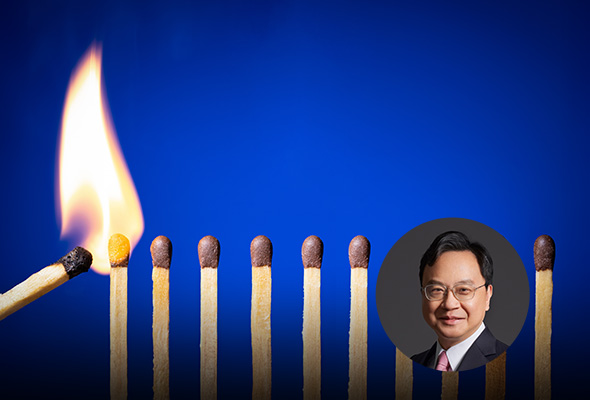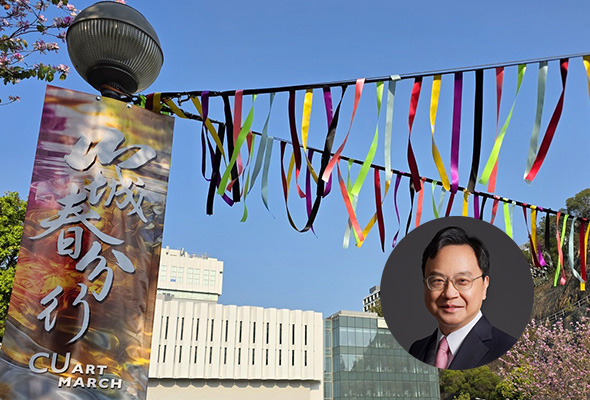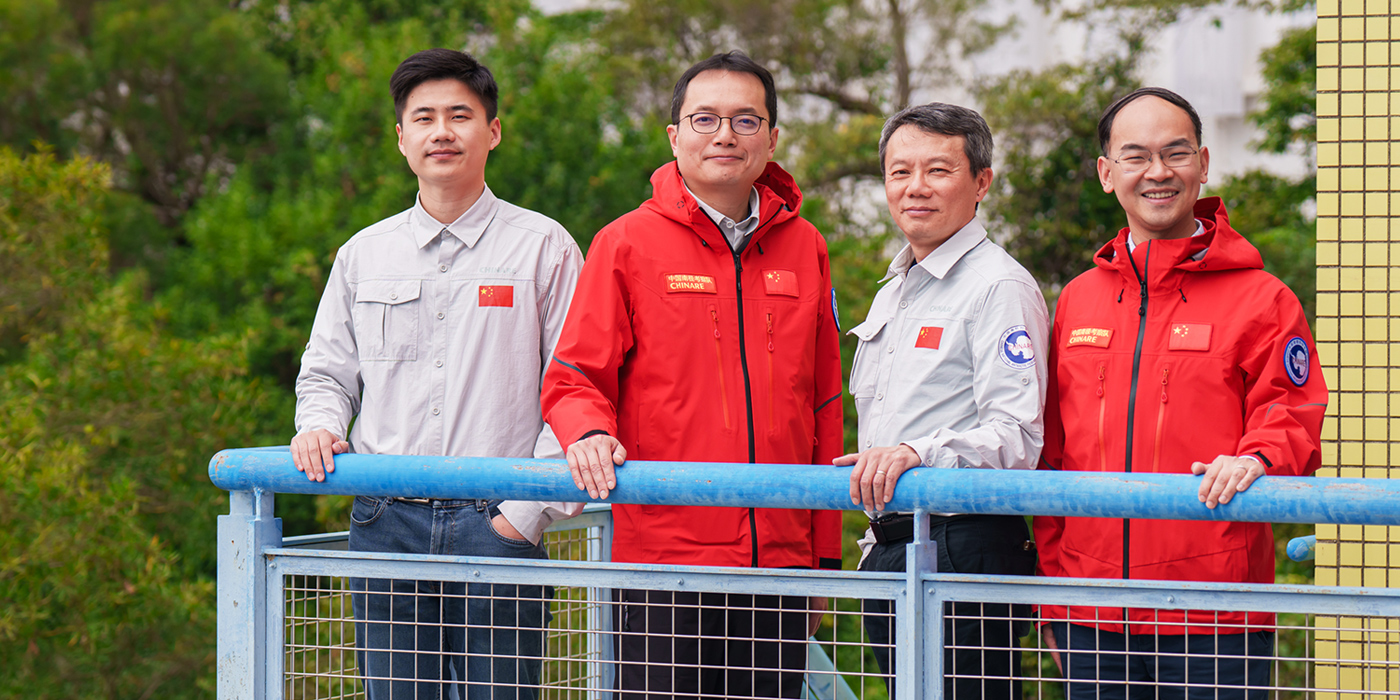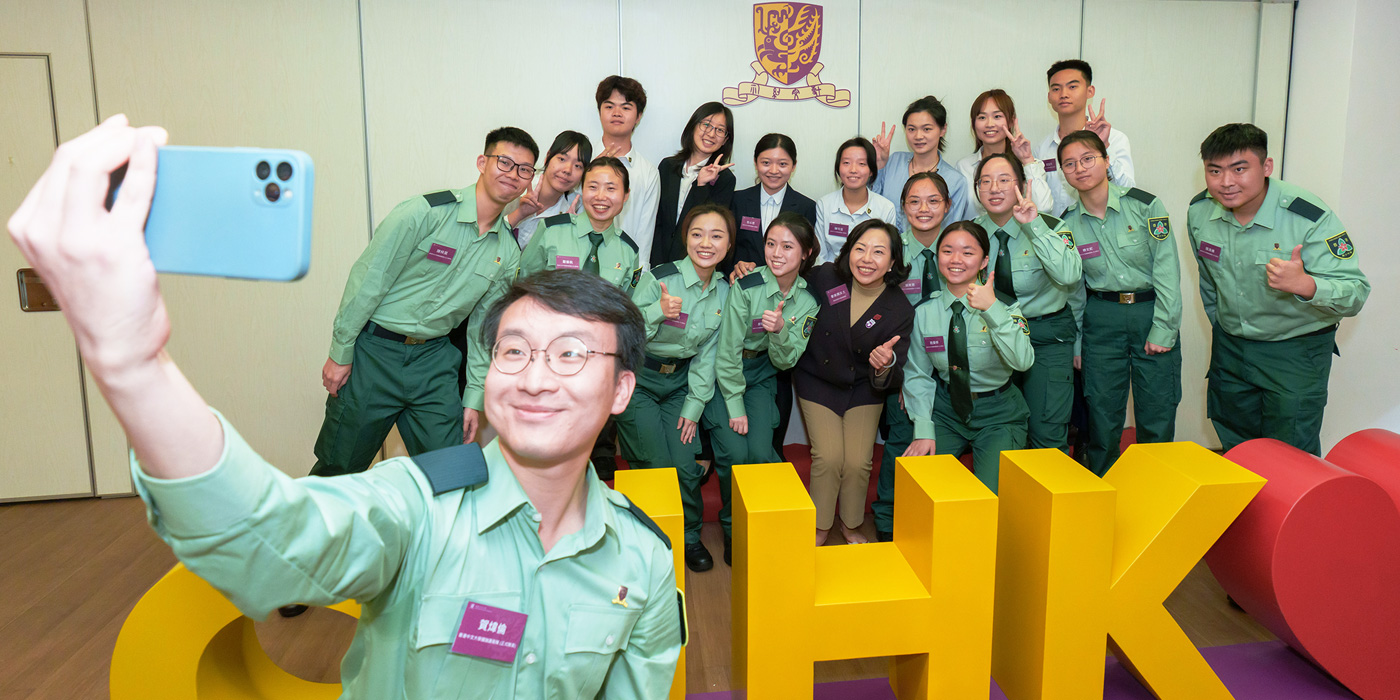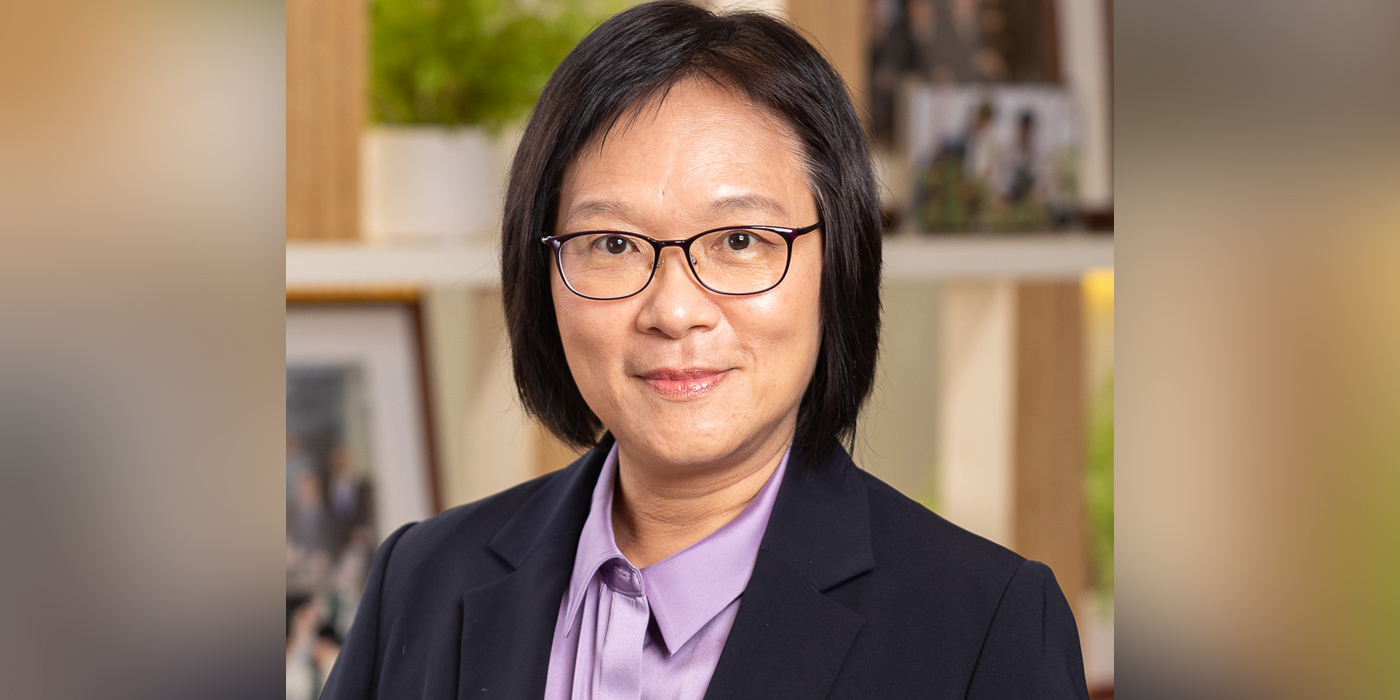Professor Wong Nim-yan
Associate Professor of the Department of Chinese Language and Literature
25-year award
14 May 2025
A woman of letters sits with composure at the interview, a picture of patience, answering questions at a measured pace. When her recent receipt of CUHK’s 25-Year Long Service Award comes up for mention, a hint of emotion flashes across the face. “Counting my student days, I’ve spent 30 years at CUHK,” she says.
The emotion is one of pleasure, as it dawns on Professor Wong Nim-yan that she has been living and breathing the ethos of CUHK, her dream school since teenage days, for three decades. “The University’s distinctive spirit of valuing ideals, and its strong academic atmosphere, captivated me the moment I set foot on campus,” she recalls.
She singles out two teachers from her early years at CUHK: Professor Yeung Chung-kee of the Department of Chinese Language and Literature, who gave her a free hand to research into Hong Kong writer Wong Bik-wan for master’s and doctoral studies; and Professor Chen Te of the Department of Philosophy, her tutor in Chung Chi College’s General Education course, “Idea of a University”.
Multiple roles
Professor Wong manages a few roles concurrently: Associate Professor in the Department of Chinese Language and Literature, Director of the Hong Kong Literature Research Centre, and Associate Dean (Public Relations and Promotion) of the Faculty of Arts. When Professor Kwan Mei-po, Head of Chung Chi College, invited her in the summer of 2023 to serve as Associate Head, her thoughts went to the professor’s routine of rising at 3:30 every morning and maintaining a demanding schedule. If the College Head could set an example by excelling in academic, administrative and college service all at once, she should be no less eager to embrace the challenge.
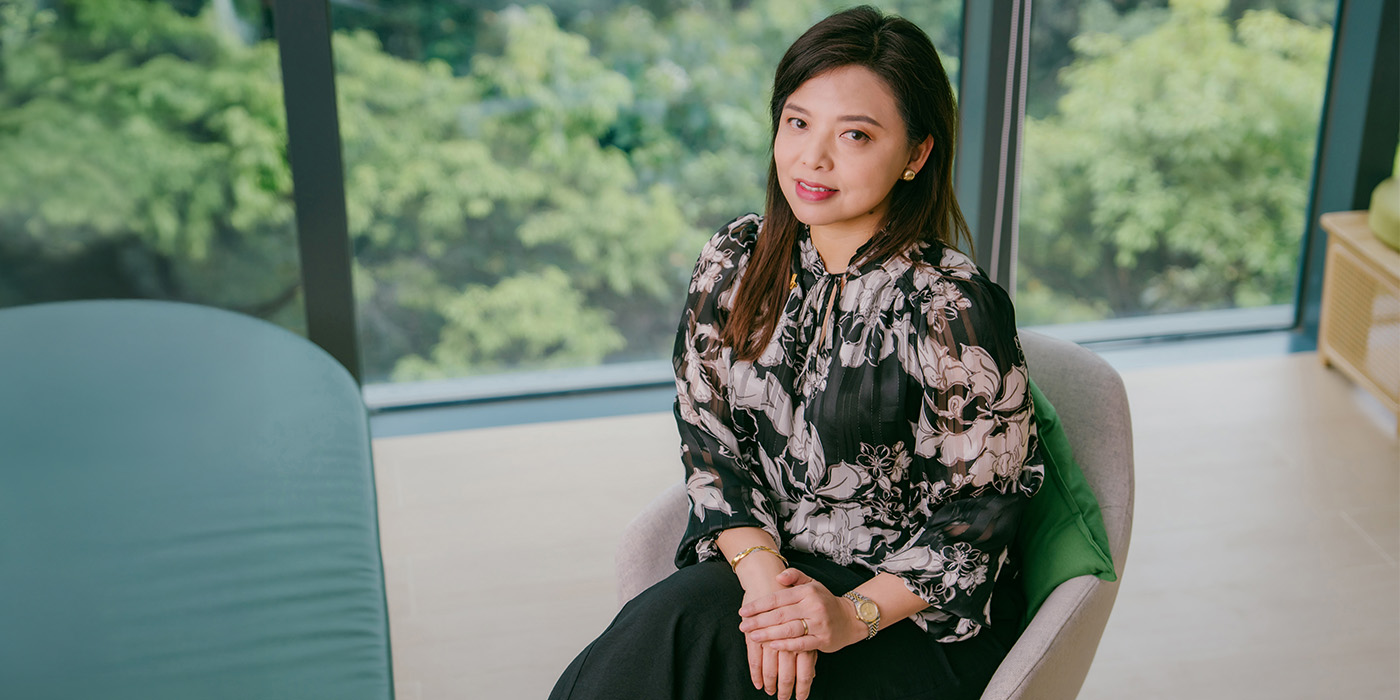
“The most wonderful thing in life is that all roles are not separate but intertwined,” she says. As a teacher and literary critic, she is dedicated to exploring the unique beauty and spirit of Hong Kong literature. As Associate Head of Chung Chi College, she witnesses people from different generations and professions coming together through the College. And she chuckles at how, even in the home, everything is also closely connected, for her husband, Dung Kai-cheung, is a novelist who often helps adjust her literary perspectives from a writer’s point of view. Although her son studies science, his university experiences have also inspired her to reflect on university education from another angle.
Bound to Hong Kong literature
In 2016, Professor Wong took on the role of Director at the Literature Research Centre, continuing the cultural mission of Professor Lo Wai-luen and Professor Fan Sin-biu. The Centre organises the Hong Kong Literary Walk for young people to visit writers’ former residences and literary landmarks, such as the Repulse Bay setting in Eileen Chang’s novel Love in a Fallen City, or the literary footsteps documented in Professor Lo’s works. “These landmarks show us that Hong Kong is far from being a commercial metropolitan—it’s a city where literati gather and stories flow.”
She also highlights the Hong Kong Literature Special Collection at the CUHK Library, which preserves writers’ manuscripts, diaries and signed books, ensuring that the precious legacy of local literature is safeguarded and passed down. “Every time I step into the Special Collection room, I feel it’s a treasure trove of Hong Kong’s culture, a reminder of the city’s profound heritage.” She plans to start with a study of Hong Kong writer Ye Lingfeng’s book collection, to explore the relationship between urban collections and cultural identity.
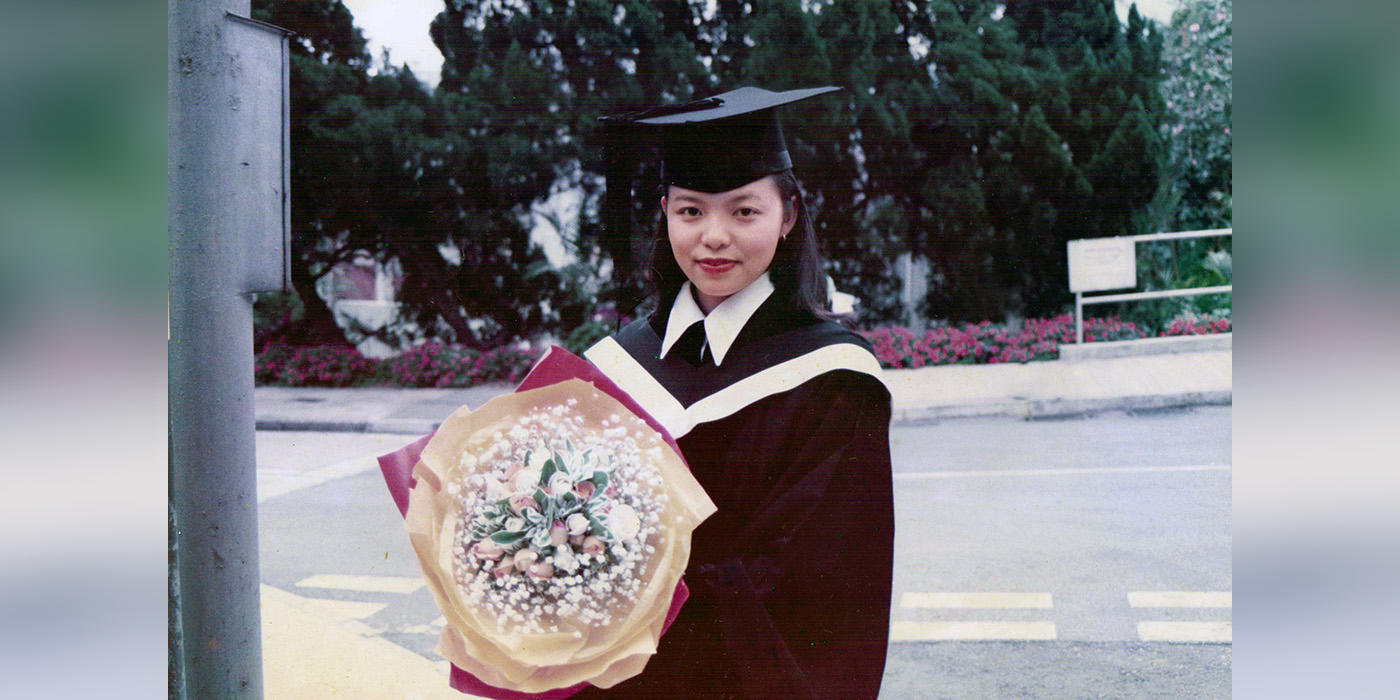
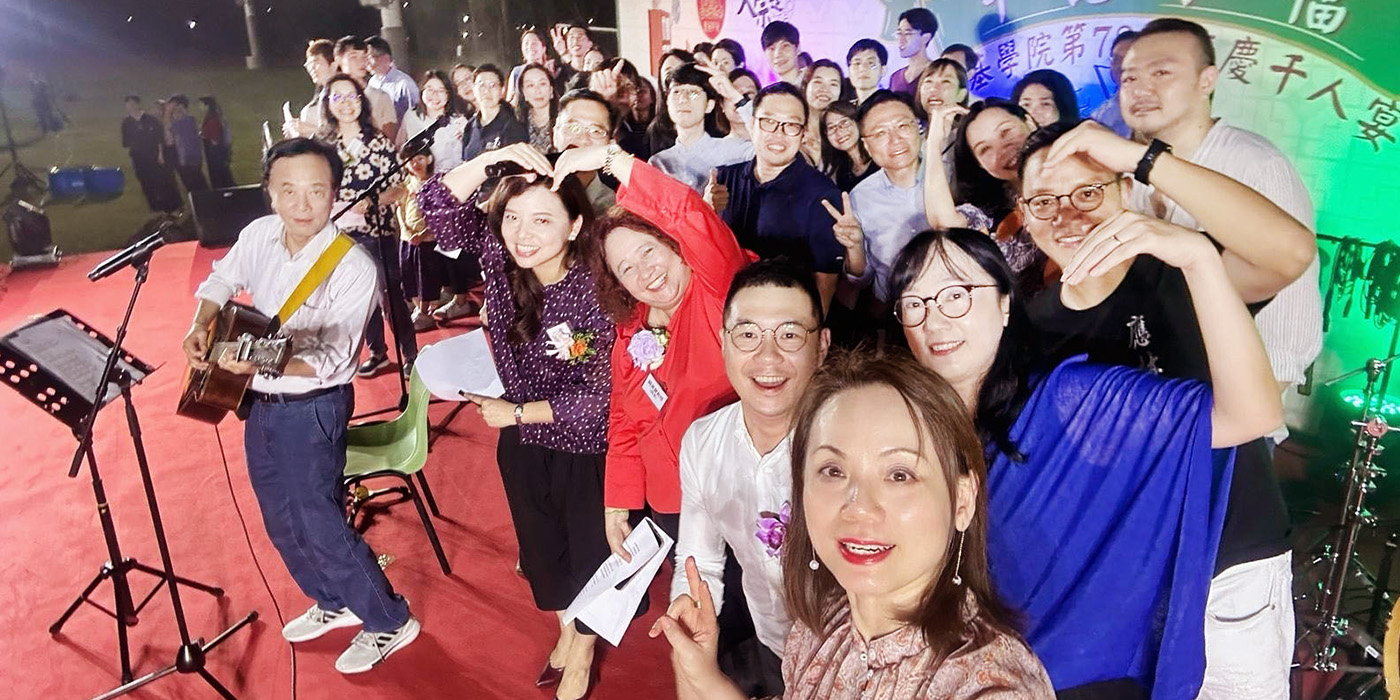
Humanities, the light unto one’s path
At Chung Chi College, she promotes a reading club. Students from various disciplines dive enthusiastically into The Legend of the Condor Heroes, Night on the Galactic Railroad, Introduction to the Rules of Rhyme and The Analects. “I hope everyone can have some respite in reading and find their own inspiration,” she says.
Through the reading club and the Chung Chi language lectures she hosts, Professor Wong encourages students to draw wisdom from classics. For instance, when discussing The Analects passages, such as “To learn and to practise what is learned from time to time, is this not a pleasure?” she feels that everyone is truly reflecting together on the joys found in learning, friendship and personal growth.
Professor Wong firmly believes that literature allows people to seek understanding in turbulent times, much like Du Fu’s lines: “The stars hang low over vast plains, the moon surges with the river’s flow.” She explains: “Under the night sky, the stars hang low and the plains stretch far; the moonlight surges on the great river, flowing endlessly. After reciting these lines, I immediately feel my own smallness in the long river of time, and realise that a moment’s loneliness or setback is nothing to fret over.”
She often likes to quote from The Analects: “Time passes like this river, flowing day and night without stopping.” This lamentation from Confucius is rich in meaning, describing how time flows like water, ever-changing, an impermanence that constitutes eternity. Precisely because time goes by so swiftly, we should cherish every moment and make the most of our days. This, says the woman of letters, is also the enduring and ever-renewing spirit at the heart of a humanities education.
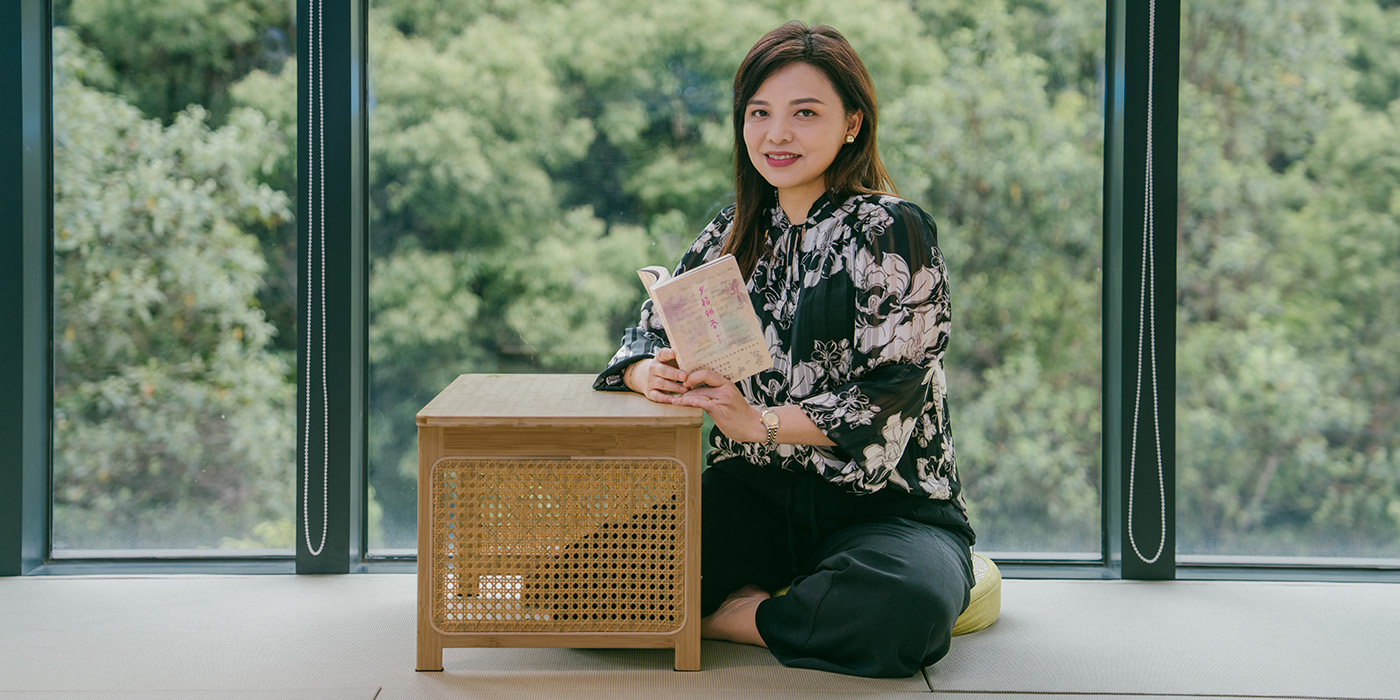
By Jenny Lau
Photos by Steven Yan


